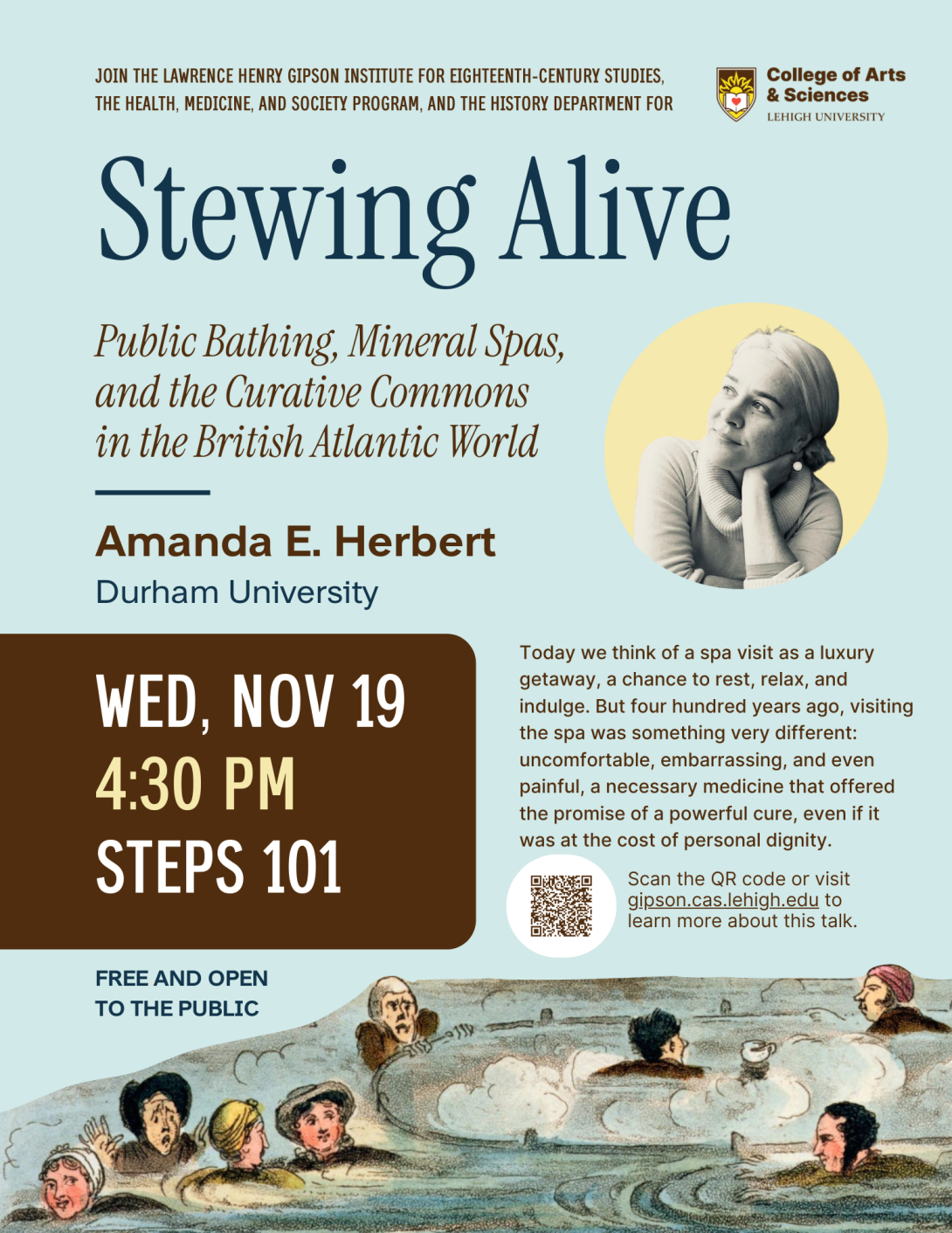Today we think of a spa visit as a luxury getaway, a chance to rest, relax, and indulge. But four hundred years ago, visiting the spa was something very different: uncomfortable, embarrassing, and even painful, a necessary medicine that offered the promise of a powerful cure, even if it was at the cost of personal dignity. This talk traces the premodern history of mineral water medicine, showing how, in the eighteenth-century British Atlantic world, spas offered free medical resources to all people. Spas were imagined as a 'curative commons,' a place where anyone, regardless of their nationality, social status, or gender, could take the waters for free. Making sure that people behaved within the steamy confines of the pools was another story entirely.
Amanda E. Herbert is Associate Professor of Early Modern Americas in the History Department at Durham University. She is an historian of the body: gender and sexuality; health and wellness; food, drink, and appetite. She holds the Ph.D. in History from Johns Hopkins University, and is the author of Female Alliances: Gender, Identity, and Friendship in Early Modern Britain (Yale, 2014) winner of the Best Book Award from the Society for the Study of Early Modern Women. She’s published articles in Gender & History, the Journal of British Studies, and Early American Studies, among others. She’s an editor for The Recipes Project, an e-journal devoted to the study of historical recipes of all kinds. Her grant-funded collaborative projects have been supported by the AHRC, SSHRC, and the Mellon Foundation, and include the $1.5 million Folger Shakespeare Library Before ‘Farm to Table’: Early Modern Foodways and Cultures. She is at work on two book projects, Spa Medicine and Body Politics in the British Atlantic World; and Leftovers: The Afterlives of Early Modern Food. She writes for all audiences, including Time Magazine, the Times Literary Supplement, Aeon, and Gastro Obscura.
This event is co-sponsored by the Health, Medicine, and Society Program and the History Department and is part of our Illness and Health in the Transatlantic Eighteenth Century 2025-2026 Speaker Series.

